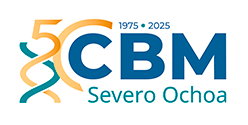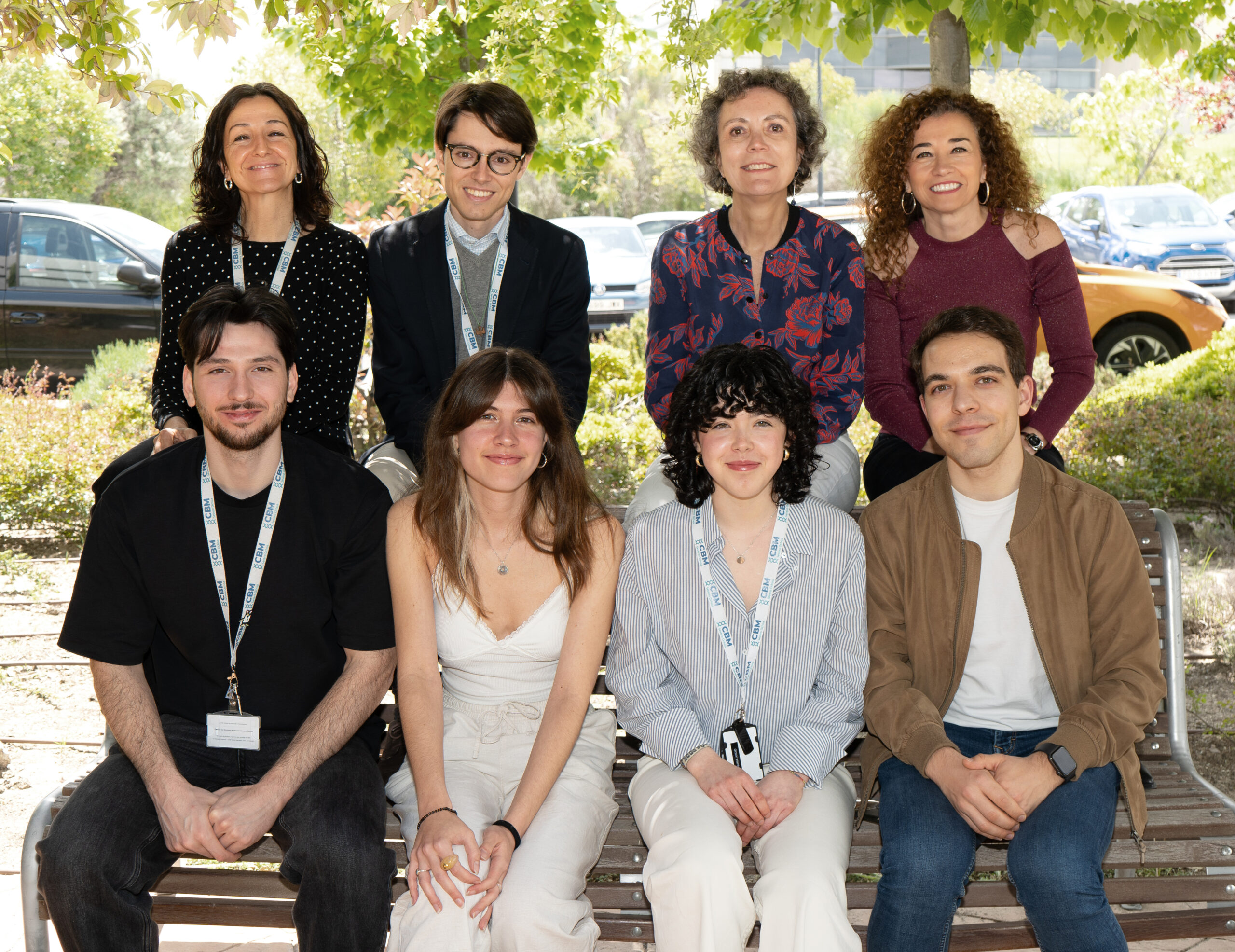Scientific Program
Physiological and pathological processes
RESEARCH GROUP
Physiopathology studies and therapeutical approaches in animal and cellular models of neurometabolic diseases
Our translational research is focused in rare neurometabolic diseases. We create and study tailored animal and cellular models to understand the underlying molecular and physiopathological mechanisms. Our goal is to develop personalized therapies addressing unmet clinical needs, including mutation-specific approaches and pharmacological interventions. Our team excels in generating iPSCs and employs CRISPR/Cas9 technology for in vitro and in vivo disease modeling.
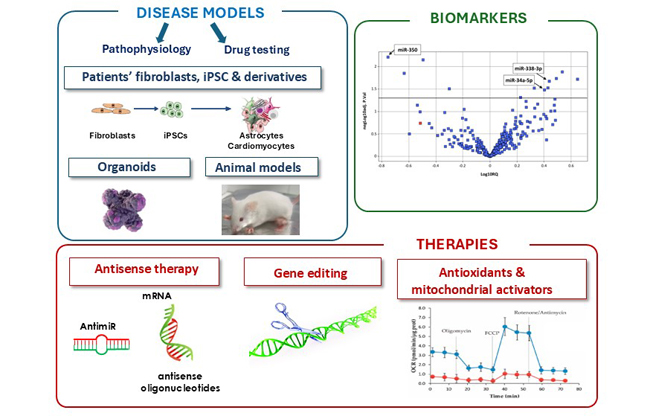
Research
The group belongs to CIBER Rare Diseases (CIBERER) and to Health Research Institute Hospital La Paz (IdiPAZ) and actively collaborates with Centro de Diagnóstico de Enfermedades Moleculares (CEDEM, Science Faculty, UAM). Our research is focused in neurometabolic diseases, propionic acidemia (PA) and hyperphenylalaninemias (HPAs) among others, enzymatic deficiencies of autosomal recessive inheritance, characterized by the toxic accumulation of precursors and lack of downstream metabolites.
Our projects represent translational research with the aim of generating and characterizing animal and cellular models relevant for specific diseases, to be used as research tools to understand the molecular and physiopathological mechanisms responsible for disease, to analyse potential biomarkers for prognosis and follow-up and to identify new therapeutic targets. The ultimate aim is to develop personalized therapies, both mutation specific approaches, such as gene editing and antisense oligonucleotides, as well as pharmacological therapies with antioxidant compounds and mitochondrial activators, performing preclinical studies in the specific disease models.
The research group has ample experience in the generation of iPSCs from patients’ fibroblasts and their differentiation to neuronal precursors, astrocytes and cardiomyocytes, relevant cell lineages for the diseases under study. We have also extensively used gene editing CRISPR/Cas9 technology to generate cellular (hepatoma cells, iPSCs) and animal (mouse) models of disease, both knock-out or knock-in with patient specific mutations.
One line of research involves the analysis of the physiopathological mechanisms underlying PA, one of the most frequent organic acidemias in which we have demonstrated, using a mouse model, that mitochondrial dysfunction, oxidative stress and miRNAs dysregulation contribute to the multiorganic complications of the disease. We have revealed alterations in Ca2+ mishandling, associated to elevated ROS levels and higher SERCA2a oxidation rate, along with dysregulation of specific cardiomiRs, as mechanisms involved in the development of PA associated cardiomyopathies. Studies in iPSCs-derived cardiomyocytes confirm these alterations, with PA cardiomyocytes exhibiting greatly depressed cell excitability and an increased risk of arrythmias. In iPSCs-derived PA astrocytes we observe altered mitochondrial function, miRNAs deregulation and astrogliosis.
For many years the group has studied the molecular genetics of different inherited metabolic diseases, with a special emphasis on missense and splicing variants. We have characterized the molecular mechanism of many of these variants using different eukaryotic and prokaryotic expression systems and splicing reporter minigenes. We have developed methods for modulation of splicing using antisense oligonucleotides, having successfully corrected splicing defects in cellular models of different diseases. Ongoing studies involve the use of gene editing approaches (CRISPR/Cas, base editors) to permanently correct in vitro and in vivo specific variants casing inherited metabolic diseases.
Group members

Lourdes Ruiz Desviat
Lab.: 220 Ext.: 4566/7830
lruiz(at)cbm.csic.es

Eva María Richard Rodríguez
Lab.: 220 Ext.: 4628/4596
erichard(at)cbm.csic.es

María del Mar Álvarez García
Lab.: 220 Ext.: 4596
malvarez(at)cbm.csic.es

Irene González Garnacho
Lab.: 220 Ext.: 4628
igonzalez(at)cbm.csic.es

Emilio Martínez García-Tenorio
Lab.: 220 Ext.: 4596
emilio.martinez(at)cbm.csic.es

Gonzalo Villena Navas
Lab.: 220 Ext.: 4596
gvillena(at)cbm.csic.es

José Vicente del Álamo Rodríguez
Lab.: 220 Ext.: 4566/7830
jv.delalamo(at)cbm.csic.es
Selected publications
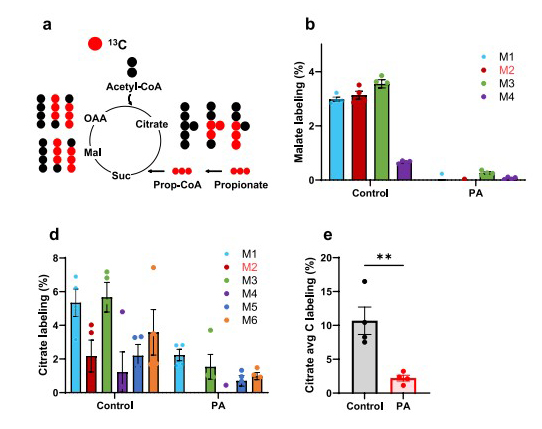
Metabolic flux analysis in hiPSC-CMs reveals insights into cardiac dysfunction in propionic acidemia
Eva Richard et al.
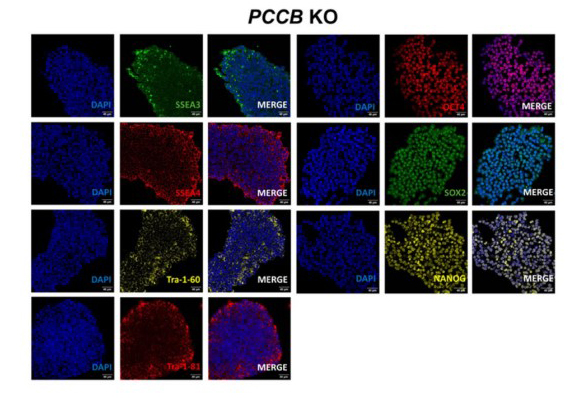
Novel CRISPR-Cas9 iPSC knockouts for PCCA and PCCB genes: advancing propionic acidemia research
Emilio M. García-Tenorio et al.
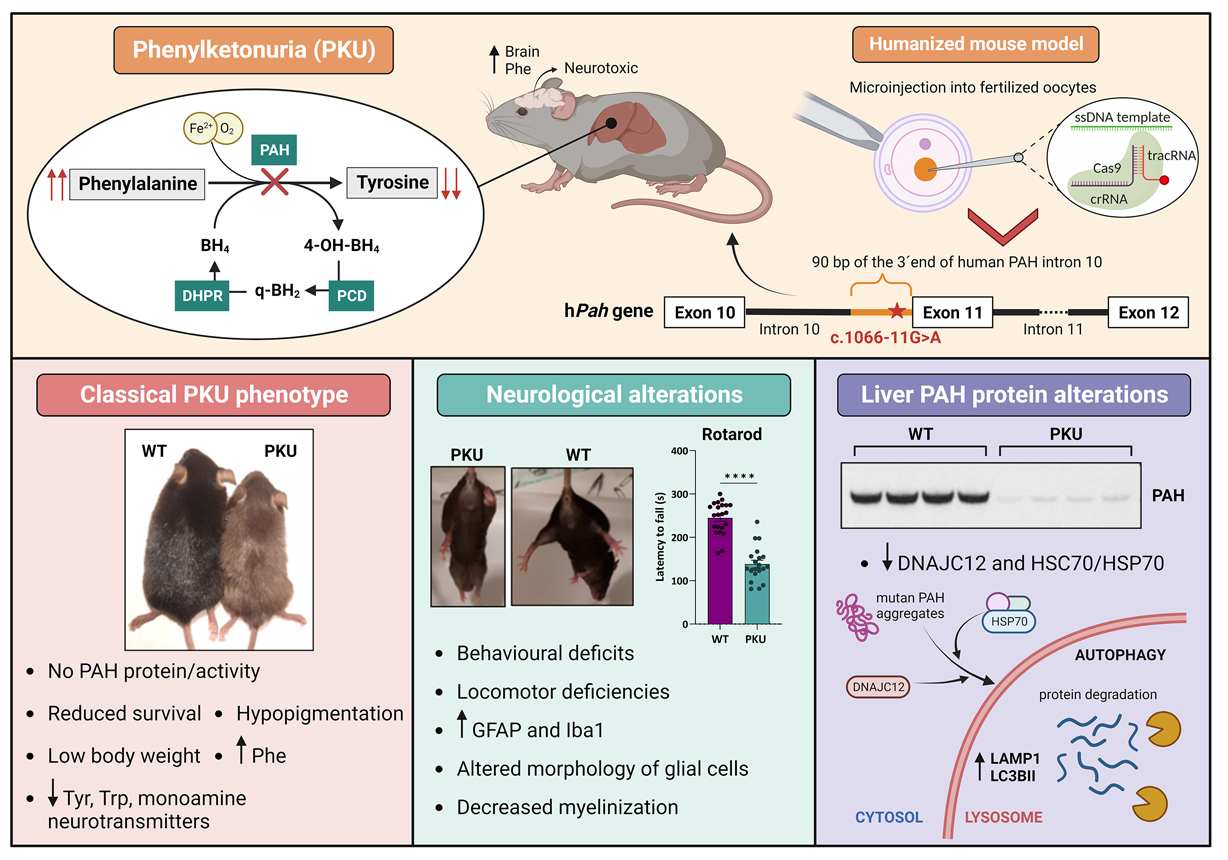
PAH deficient pathology in humanized c.1066-11G>A phenylketonuria mice
Ainhoa Martínez-Pizarro et al.
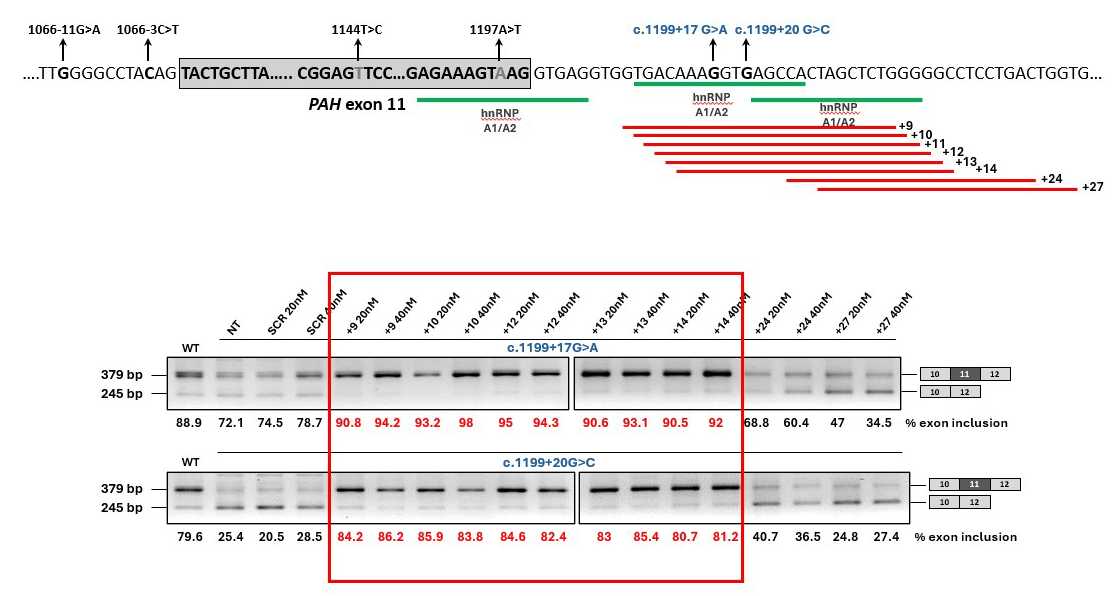
Splice-Switching Antisense Oligonucleotides Correct Phenylalanine Hydroxylase Exon 11 Skipping Defects and Rescue Enzyme Activity in Phenylketonuria
Ainhoa Martínez-Pizarro et al.
